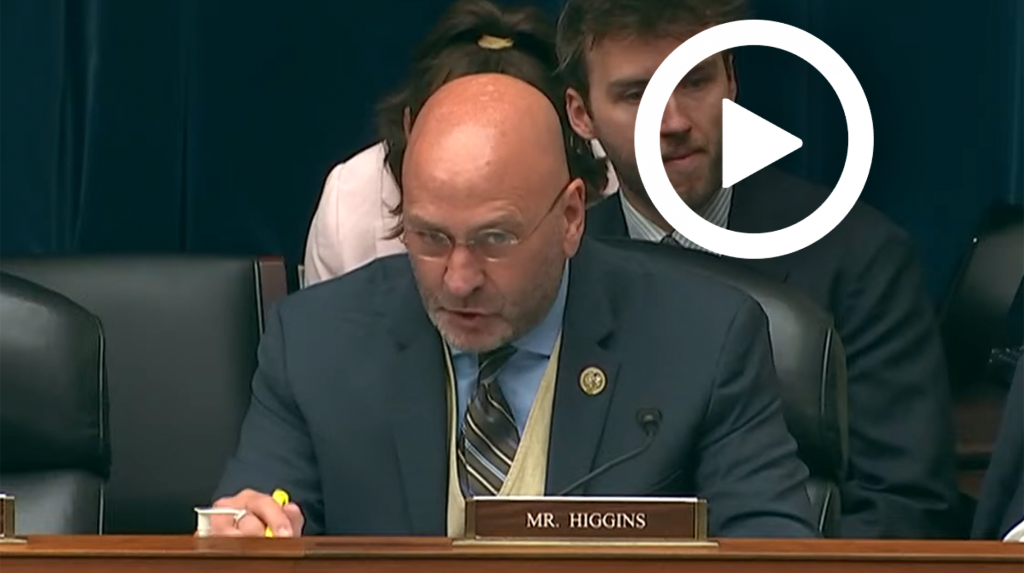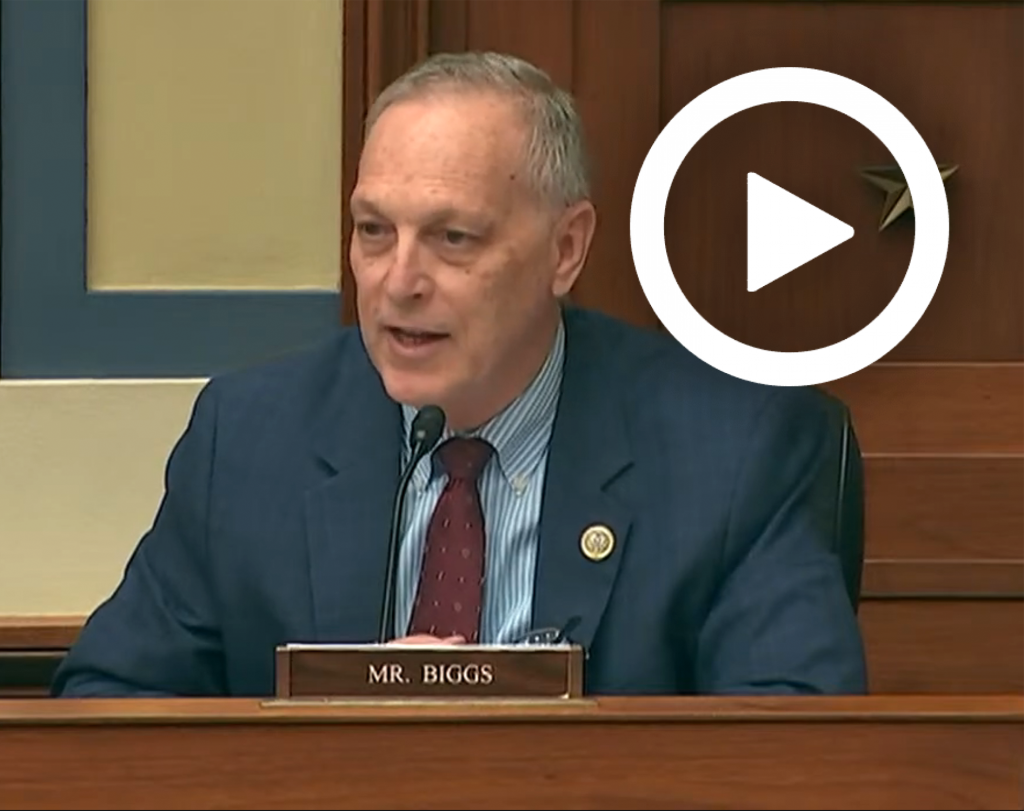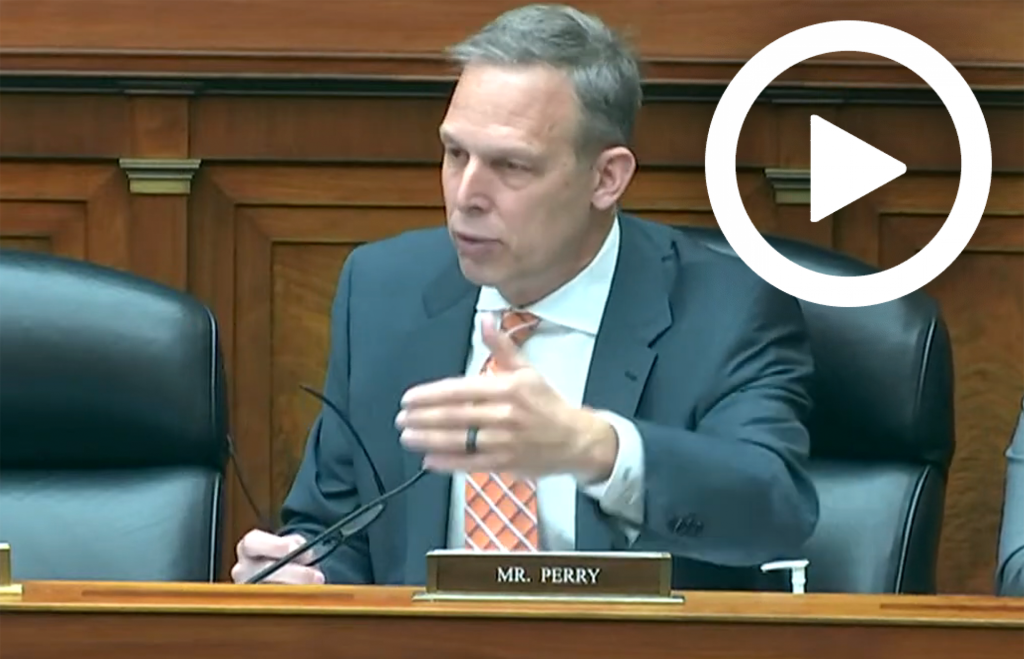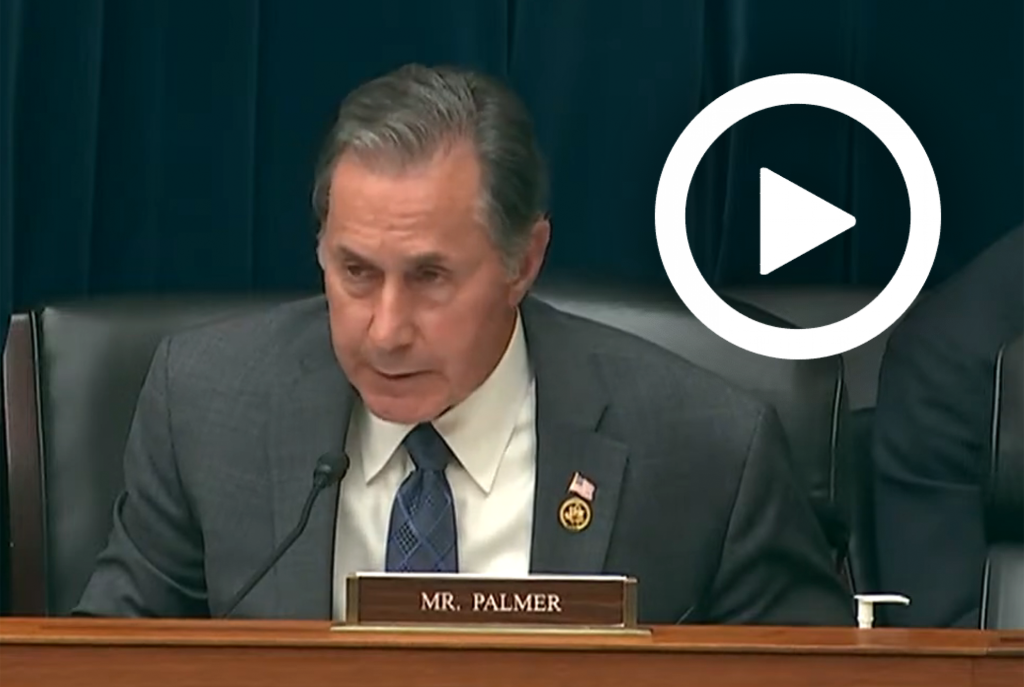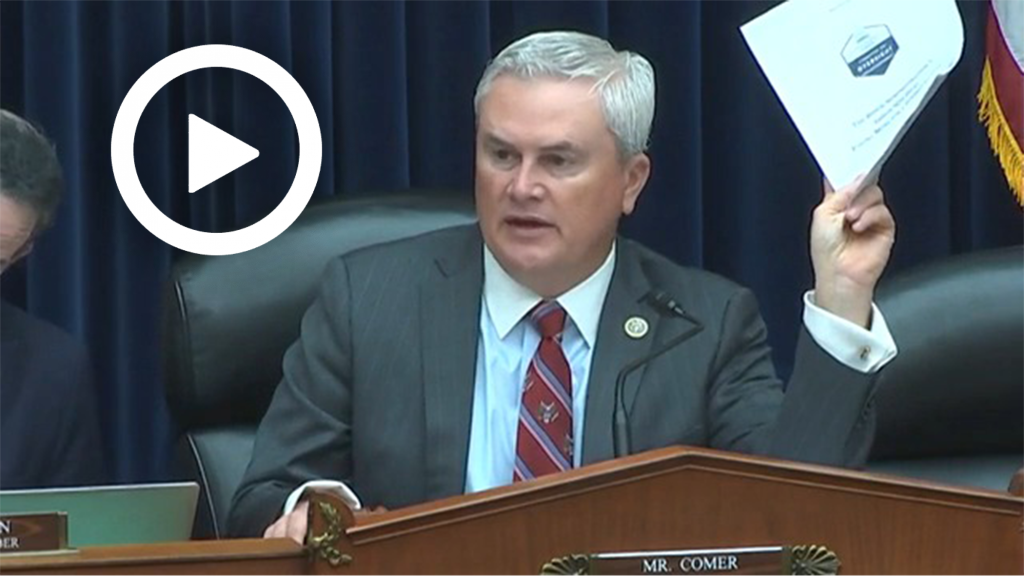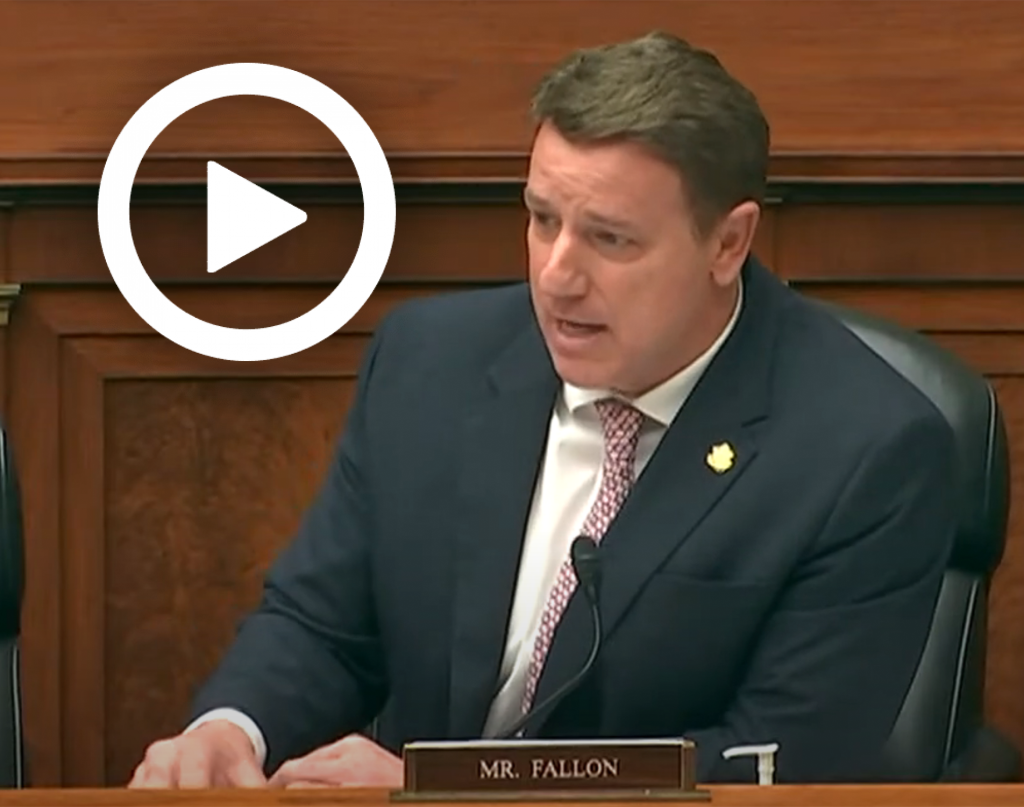Hearing Wrap Up: Republican Lawmakers Grill DOE Secretary on Radical Green Biden Energy Policies
WASHINGTON—The House Committee on Oversight and Accountability today held a hearing titled “Oversight of the U.S. Department of Energy” with Department of Energy (DOE) Secretary Jennifer Granholm to examine major policy decisions that have vilified American-made energy production in favor of far-left, radical Green New Deal priorities.
Key Takeaways:
The DOE has exceeded its regulatory authority through implementation of Green-New-Deal style policies.
- The Biden Administration’s liquified natural gas (LNG) export pause may have been influenced by leftist environmental groups and climate activists. At today’s hearing, Secretary Granholm made clear that an assessment on whether the LNG pause is in the public interest was not been completed prior to moving forward with the ban. Members explained how this unprecedented action by DOE is outside the authority of the Natural Gas Act (NGA).
The Biden Administration’s major energy policy decisions have jeopardized economic opportunities, threatened our energy security and national security, raised energy costs on Americans, and hurt small businesses.
- The Biden Administration damaged America’s oil security by depleting the Strategic Petroleum Reserve (SPR). President Biden has wrongly tried to blame high oil prices on Putin’s war in Ukraine, but prices were already significantly increasing under the Biden Administration before Russia’s invasion.
The Oversight Committee today released a report highlighting the harm Biden Administration policies have inflicted on all Americans, including higher gas prices, rising electricity prices, a less stable electrical grid, and less consumer choice.
- Committee Democrats and the Biden Administration continue to demonize America’s energy producers in the oil and gas industry, but the Biden Administration’s electrification push is driving up costs for all Americans.
- The Biden Administration set a goal that 50 percent of all new passenger cars sold in 2030 would be zero-emission vehicles, but consumer demand has not reflected the Biden Administration’s vision for an all-electric future. Automakers continue to report millions of dollars in losses to EVs.
Member Highlights:Rep. Clay Higgins (R-La.) discussed how according to the Natural Gas Act, DOE should issue natural gas LNG permits unless it has clearly found that it is not in the public interest. At today’s hearing, Secretary Granholm stated that the Department of Energy has not yet completed an assessment on whether exporting LNG is in the public interest, yet it has still moved forward with issuing a long-term ban
Rep. Higgins: “Has the Department of Energy determined whether exporting LNG to our allies around the world is in the public interest? Yes or no.”
Secretary Granholm: “We’re in the middle of a study that is updating our assessment of what is in the public interest.”
Rep. Higgins: “Would that be a no?”
Secretary Granholm: “We’re in the middle of updating our assessment.”
Rep. Higgins: “So you have not yet determined?”
Secretary Granholm: “It will be complete in the first quarter of next year.”
Rep. Higgins: “That would be a no, ma’am.”
Rep. Higgins: “Why have you issued a long-term ban on export permit approvals prior to determining whether or not exporting LNG is in the public interest?”
Secretary Granholm: “Number one, we have not issued a ban. Number two, it is not long term, it is a pause to update our assessment. The assessment will be done by the first quarter of next year.”
Rep. Higgins: “What statutory authority do you claim to have to pause issuing permits?”
Secretary Granholm: “The Natural Gas Act requires that we determine whether authorizations for export of liquified natural gas are in the public interest. We are determining what is in the public interest.”
Rep. Higgins: “Precisely. Mr. Chairman, I’d like to enter into the record what I’m about to read. Citing from Section 3 of the Natural Gas Act title 15 U.S.C. 717b on commerce and trade. Exportation or importation of natural gas LNG terminals under paragraph A mandatory authorization order. It says, and I quote, the Commission shall issue such order upon application unless, after opportunity for hearing, it finds – not trying to find, in the process of finding, talking about finding, writing about finding – it finds that the proposed exportation or importation will not be consistent with the public interest.
[…]
Rep. Higgins: “In the Natural Gas Act, as I’ve just stated, it clearly states that you shall issue permits unless you find that it is not in the public interest, which has not yet happened. And yet you have mandated a pause. You have not issued permits.”
Rep. Andy Biggs (R-Ariz.) examined how the United States must rely upon a diverse array of energy sources, including fossil fuels, nuclear energy, and hydropower.
Rep. Biggs: “When you talked about net zero by 2050, you’re talking essentially about eliminating all hydrocarbon-based fuel, is that correct?”
Secretary Granholm: Net zero suggests that it is also using some hydrocarbon-based fuel but it has been decarbonized.
Rep. Biggs: “Can you name the benefits of fossil fuel as an energy source?”
Secretary Granholm: “Well, it is dense, and it keeps the lights on, keeps transportation going, it’s an important part of our energy mix.
Rep. Biggs: “It’s cheap, it’s reliable, it’s abundant, it’s predictable, it’s distributable, right?”
Secretary Granholm: “It’s all of that and it needs to be cleaned.”
Rep. Biggs: “Can you name some economic benefits that come from fossil fuels?”
Secretary Granholm: “Well clearly our economy has been built upon fossil fuels. Our economy is driven by fossil fuels. But fossil fuels have also created an enormous problem, which is climate change, and that’s impacting individuals and economies too, so let’s clean it up.”
Rep. Biggs: “Let’s talk about some other things. With fossil fuels, you saw a dramatic increase over the last hundred and thirty years of longevity and mortality rates. That’s true, right? You also saw a dramatic increase in sanitation and health impacts that were good, right?”
Secretary Granholm: “Well, I wouldn’t know that I would attribute that directly to fossil fuels but yes we have seen an increase in longevity, increase in health.”
Rep. Biggs: “So PJM interconnection, the nation’s largest grid operator, released a report finding that the amount of generation retirement appears to be more certain than the timely arrival of replacement generation resources. What they’re really getting at there is that we’re reducing reliable energy resources before reliable sources come online.”
Rep. Scott Perry (R-Pa.) asked Secretary Granholm whether the Department of Energy will commit to authorizing emergency declarations if Americans lose power as a result of agreements to shut down power plants.
Rep. Perry: “Is the Department of Energy in support of these type of agreements like this between the Sierra Club and town energy to shut down plants number one. And number two, are you committed to the emergency declaration that’s going to be required when the plant shuts down for over a million customers to have power to live in the 21st century?”
Secretary Granholm: “I’m not familiar with that agreement. I’d have to take a look at it. We certainly want to make sure that power stays on and that we add additional power to make sure that there is enough for people.”
Rep. Perry: “Assuming that is correct, are you willing to commit to an emergency declaration so that the lights and the power can stay on for a million customers. It’s going to require the Department of Energy.”
Secretary Granholm: “We’re always willing to exercise emergency authority if lights are going out.”
Rep. Palmer (R-Ala.) examined America’s overdependence on China for critical minerals and the threat of China to the U.S. economy and national security.
Rep. Palmer: “Madame Secretary, in response to a question a little while ago about the sale of oil from the strategic petroleum reserve, you said that that was in response to the war in Ukraine, is that correct?”
Secretary Granholm: “Yes.”
Rep. Palmer: “The first sale under the Biden Administration occurred in November 2021, they sold 50 million barrels in an attempt to lower gasoline prices. That’s three months before the war began, so I think you need to reevaluate your answer. […] The administration sold 50 million barrels, plus the additional barrels they sold later, to affect gasoline prices by nine cents.
“You made a comment while you were in Paris that China’s dominance in the world’s critical mineral supply chain is one of the pieces of the supply chain that we’re very concerned about in the United States. Do you stand by that?”
Secretary Granholm: “Yes.”
Rep. Palmer: “I’m very appreciative of that because I agree 100 percent that China is the existential threat to the economy and to our national security.”
Rep. Palmer: “The problem with us is the permitting. We need to take an attitude, a position, that this is so critical to our national security that we permit some of these mines immediately and we’re not subjecting ourselves to endless litigation on the permitting. […] Your goals of achieving 100 percent renewable are not achievable with our dependence on China. Our goals of our national security and the security of our economy are not achievable as long as we have this dependence on China. We’re not going to get there in the mining, the processing, and refining unless we reform our permitting process. Are you willing to participate in that effort?”
Secretary Granholm: “Yes, absolutely. I agree with you on that. And that’s the whole point is that we want to become independent of China and bringing all of that here or with allies is so important.”
Chairman Comer (R-Ky.) discussed restoring America’s domestic nuclear and uranium strategy.
Chairman Comer: “Can you provide an update to how the Department intends to ensure that cleanup compliments reindustrialization?”
Secretary Granholm: “This is one of the things that I think was so important in the passage of the Inflation Reduction Act and the bipartisan infrastructure law is that it gave us an incentive to be able to offer, for example, 48c tax credits to former energy communities or energy communities that were challenged. To be able to lure manufacturing to those communities is embedded in the tax laws that were passed by Congress.”
Chairman Comer: “As you know, a crucial part of this reindustrialization will be attracting industries that recognize and utilize the specialized skills and knowledge of the existing regional nuclear energy workforce. To that end, I understand that DOE plans to issue a funding opportunity announcement for novel and innovative nuclear enrichment technologies. Given that DOE has had this funding for two years, can you provide a timeline on when that funding opportunity might be released and when DOE plans to make those awards.” Secretary Granholm: “Yes, I have to check with our office of nuclear energy on the exact timing on it but I can get back to you.”
Subcommittee on Economic Growth, Energy Policy, and Regulatory Affairs Chairman Pat Fallon (R-Texas) reiterated how the U.S. should continue to lead in LNG exports due to our superior environmental protections which far exceed that of other nations and our adversaries.
Rep. Fallon: “Over the past twenty years has the United States increased or decreased our carbon footprint?”
Secretary Granholm: “Over the past twenty years, decreased.”
Rep. Fallon: “Has China increased or decreased?”
Secretary Granholm: “Increased by?”
Rep. Fallon: “I don’t have the percentage.”
Secretary Granholm: “Okay, it’s triple. About three hundred percent.”
Rep. Fallon: “Would you agree that the United States has a greater commitment to protecting the environment than, let’s say, China.”
Secretary Granholm: “I think we have a greater commitment to protecting the environment than China, yes.”
[…]
Rep. Fallon: “Do you think we have a greater commitment to protecting the environment than Venezuela?”
Secretary Granholm: “I think we have a greater commitment to protecting the environment, yes.”
Rep. Fallon: “Because we have a strong environmental lobby, we have a rule of law. None of those countries have those kinds of things. It perplexes me that we would essentially ban on liquified natural gas exports and we’re just giving a gift to one of the most evil dictators in the world, Vladimir Putin.”
Click here to watch the full hearing.
READ MORE: Comer Opens Hearing with DOE Secretary Jennifer Granholm
